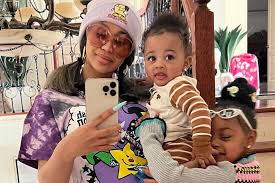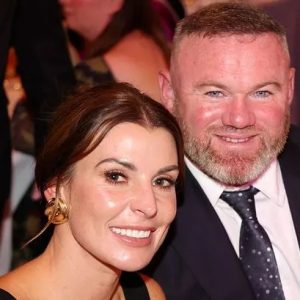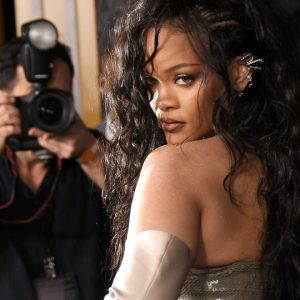The life story of genius Steve Jobs
Building one of the world’s most successful companies from a garage, Steve embodies the American spirit of innovation and ingenuity.
By creating personal computers and putting the internet in your pocket, Steve created an information revolution that was not only accessible, but also visually pleasing and fun.
Turning his talent into legendary stories, he brought joy to millions of children and adults alike.
Steve often said that he lived each day as if it were his last. And he did.
And Steve Jobs did it, changed lives, redefined entire industries and achieved one of the rarest achievements in human history: changing the way each of us sees the world.”
(President Barack Obama)
Steve Jobs was born on February 24, 1955 in San Francisco (USA). Jobs was the illegitimate son of an American woman and a Muslim man. Jobs’ mother, Joanne Simpson, was a student when she gave birth to Jobs. Unable to overcome her family’s prejudices, this woman could not live with the man she loved and could not raise her child alone.

Steve Jobs’ 2005 commencement speech at Stanford University about his life, career, love and loss became one of the most memorable and memorable speeches in human history.
Steve Jobs was a private person, almost never talked about his personal life and his most open conversation was probably his speech at Stanford University’s graduation ceremony in 2005 about his background, career, love, and loss in his life, which became one of the most memorable and memorable speeches in human history.
“I am honored to be with you today at your commencement from one of the most prestigious universities in the world. I never had a college degree. I must confess that this is the closest I have ever come to a graduation. I want to tell you three stories from my life. Not many, just three.
The first story is about connecting the dots.
I dropped out of Reed College after the first 6 months, but then stayed enrolled for another 18 months before I actually left. So why did I drop out?
It was all preordained before I was born. My mother was a college student, unmarried, and decided to put me up for adoption. She felt I should be raised by college graduates, so she arranged for me to be placed with a lawyer and his wife on the day I was born. However, things changed at the last minute because they wanted a girl more than me.
So my adoptive parents, who were on a waiting list, got a call in the middle of the night asking, “We have an unexpected baby boy, would you like to take care of him?” and they said, “Of course.” My mother later found out that my adoptive mother had never graduated from college and my father had never even graduated from high school. She refused to sign the adoption papers and only relented a few months later when my parents promised that I would someday go to college.
Then 17 years later, I did go to college. But I naively chose a school that was almost as expensive as Stanford. My parents’ entire savings went to paying for my tuition. After six months, I realized it wasn’t working. I had no idea what I wanted to do with my life and no idea how college would help me figure it out. There, I spent all the money my parents had saved.
I had saved my whole life. So I went out with the belief that everything would be okay. It was a scary moment, but looking back, it was one of the best decisions I ever made.
best decision I ever made. I started dropping required classes that didn’t interest me and only enrolled in the ones that interested me.
I didn’t have a dorm room, so I slept on the floor in friends’ rooms, I returned coke bottles for the 5¢ deposits to buy food with, and I would walk the 7 miles every Sunday night to get one good meal a week at the Hare Krishna temple. What I’m saying is that pursuing my curiosity and curiosity turned out to be invaluable later on.
Here’s an example: Reed College at the time was probably the best calligraphy school in the country. The campus was full of posters and paintings with beautiful hand lettering. Since I had dropped out, I decided to take a calligraphy class just to learn how they did it. I learned about stroke variation, about spacing between letters, about bold and italics. It was an artistic and historical subject that science couldn’t capture, and I found it fascinating.
None of this had even a hope of any practical application in my life. But ten years later, when we were designing the first Macintosh computer, it all came back to me. And we designed it all into the Mac. It was the first computer with beautiful typography. If I had never dropped in on that single course in college, the Mac would have never had multiple typefaces or proportionally spaced fonts. If I had never dropped out, I would have never dropped in on this calligraphy class, and personal computers might not have the rich typography that they do.
Of course, you can’t connect the dots looking forward, you can only connect them looking back. So trust that the dots, the events in your life will somehow influence your future. You have to have faith in something – your gut, destiny, life, fate or whatever – that way of thinking has made all the difference in my life.
The second story is about love and loss.
I was lucky to find what I loved at a young age. Woz (Steve Wozniak) and I started Apple in my parents’ garage when I was 20. We worked hard for 10 years and grew Apple from that garage into a $2 billion company with 4,000 employees. We released our finest creation – the Macintosh – a year later, when I turned 30.

Macintosh Computer – Steve Jobs’ First Creative Achievement
Then I got fired. How can you get fired from a company you started? Apple hired someone who I thought was talented enough to run the company with me, and for the first year things went well. But then our visions of the future started to diverge and we couldn’t get along. And then the board sided with him. At 30, I was out. What I had spent my entire life chasing was gone, it was destroyed.
I didn’t know what to do for the next few months. I felt like I had dropped the baton as it was being passed to me. I met with David Packard and Bob Noyce, tried to apologize for screwing things up. I even thought about quitting. But things started to pull me back. I still loved what I did. The turn around at Apple hadn’t changed me. I’d been rejected, but I was still in love. So I decided to start over.
I didn’t see it then, but it turned out that getting fired was the best thing that could have ever happened to me. The pressure of maintaining success was replaced by the lightness of being a beginner again, unsure of what was going to happen. It freed me to enter the most creative period of my life.
During the next five years, I started a company named NeXT, another company named Pixar, and fell in love with an amazing woman who would become my wife. Pixar went on to create the worlds first computer animated feature film, Toy Story, and is now the most successful animation studio in the world. Apple bought NeXT, I returned to Apple, and the technology we developed at NeXT is at the heart of Apple’s current renaissance. And Laurene and I have a wonderful family together.

Steve Jobs at NeXT after being fired from Apple
I’m pretty sure none of this would have happened if I hadn’t been fired from Apple. It was awful tasting medicine, but the patient needed it. Sometimes life hits you in the head with a brick. Don’t lose faith. I’ve learned that the only thing that kept me going was that I loved what I did. You’ve got to find what you love. And that’s as true for your work as it is for your lovers. Your work will fill a large part of your life, and the only way to be truly satisfied is to do what you believe is great work. And the only way to do great work is to love what you do. If you haven’t found it yet, keep looking. Don’t settle. Like any great relationship, it just gets better and better as the years roll on.
The third story is about death.
When I was 17, I read somewhere that went something like: “If you live each day as if it was your last, someday you’ll most certainly be right.” It made an impression on me, and since then, for the past 33 years, I have looked in the mirror every morning and asked myself: “If today were the last day of my life, would I want to do what I am about to do today?” And whenever the answer has been “No” for too many days in a row, I know I need to change something.

Remembering that I’ll be dead soon is the most important tool I’ve ever encountered to help me make the big choices in life. Because almost everything — all external expectations, all pride, all fear of embarrassment or failure — these things just fall away in the face of death, leaving only what is truly important. Remembering that you are going to die is the best way I know to avoid the trap of thinking you have something to lose. There is no reason not to follow your heart.
A year ago, I found out I had cancer. I had a scan at 7:30 and it clearly showed a tumor on my pancreas. I didn’t even know what a pancreas was. The doctor told me it was incurable and that I had three to six months to live. He advised me to go home and get my affairs in order, and try to tell my kids the things I thought I would tell them in 10 years but would have to tell them in a few months. In other words, say goodbye.

Steve Jobs with family
That evening I had a biopsy. They stuck a tube down my throat, through my stomach and intestines, and put a needle into my pancreas to get a sample of the tumor cells. I was calm, and my wife, who was there, told me that when the doctors viewed the cells under a microscope, they started to cry because it was a rare form of pancreatic cancer that can be cured with surgery. I had the surgery and I am fine now.
That was the closest I’ve been to facing death. I hope it’s a few more decades. No one wants to die. Even people who want to go to heaven don’t want to die to get there. But death is the destination we all share. No one has ever escaped it. Death is very likely the single best invention of Life. It is Life’s change agent. It clears out the old to make way for the new. Right now the new is you, but someday not too long from now, you will become the old and be cleared away. Sorry to be so blunt, but it is quite true.
Your time is limited, so don’t waste it living someone else’s life. Don’t be trapped by dogma — which is living with the results of other people’s thinking. Don’t let the noise of others’ opinions drown out your own inner voice. They somehow already know what you truly want to become. Everything else is secondary.
When I was young, there was an amazing book called The Whole Earth Catalog. It was like the bible, the guidebook of my generation. It was created by Stewart Brand in the 1960s, before personal computers. It was compiled with a typewriter, scissors, and a Polaroid camera. It was like Google on paper. On the back cover of the book was a photo of a road at dawn, and underneath it were the words: “Live Hungry. Live Foolish.” I always wished that for myself. Today, as you graduate and begin your new lives, I wish that for you.
Stay Hungry. Stay Foolish.”
Although there have been many books written

Steve Jobs passed away on October 5, 2011 due to pancreatic cancer.
Steve Jobs passed away on the morning of October 5, 2011, leaving the whole world shocked and saddened.
“Apple has lost a creative genius and a great visionary, and the world has lost an outstanding figure. Those who were fortunate enough to know and work with Jobs have lost a close friend and a driving force. Jobs has passed away, leaving behind a company that only he could have built. His spirit and philosophy will forever be associated with Apple”
– (Short news posted on Apple’s website on the day Steven Jobs passed away).
Viewed using Just Read






